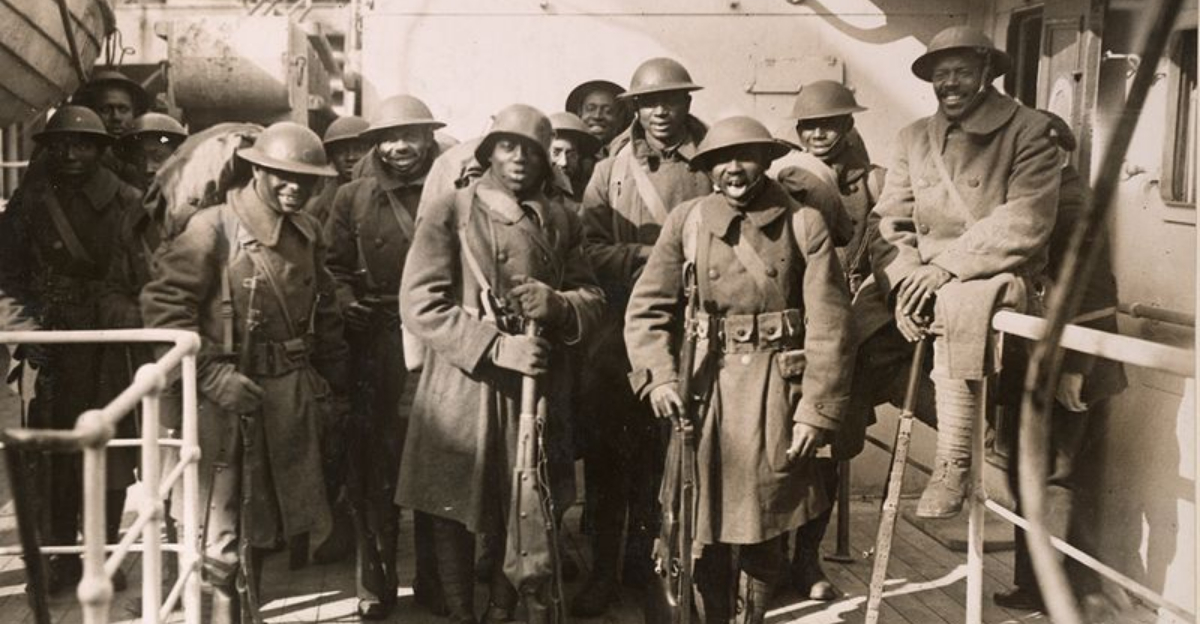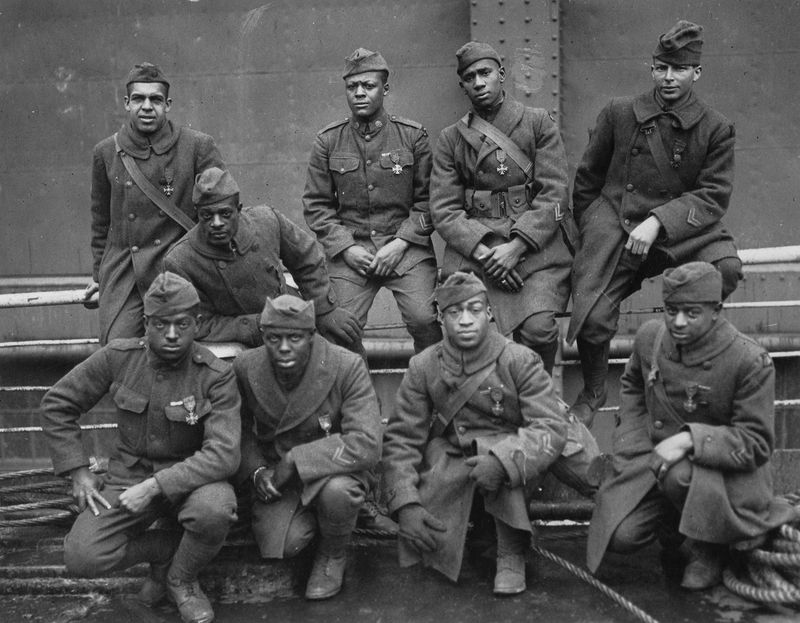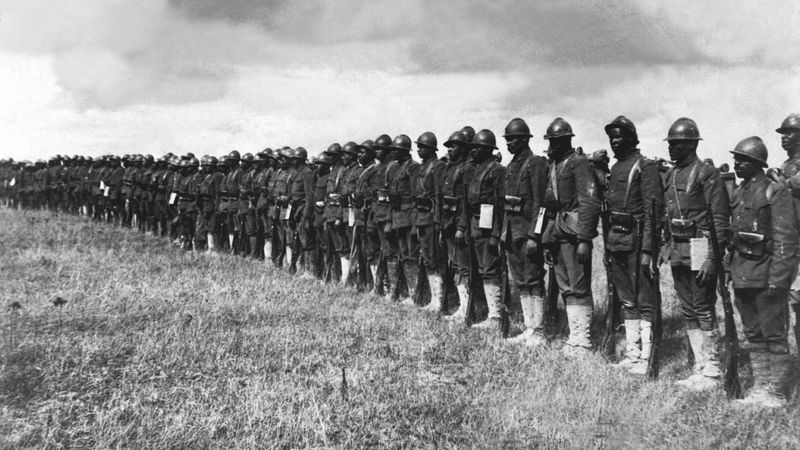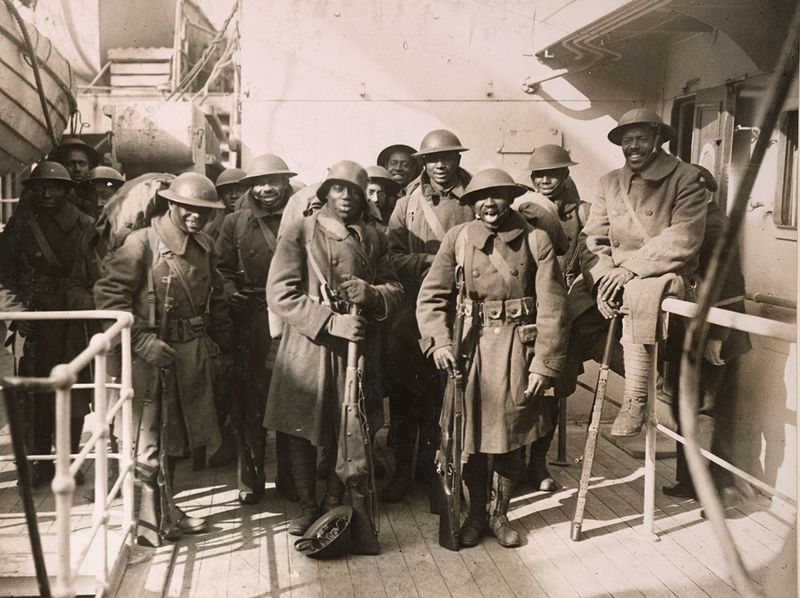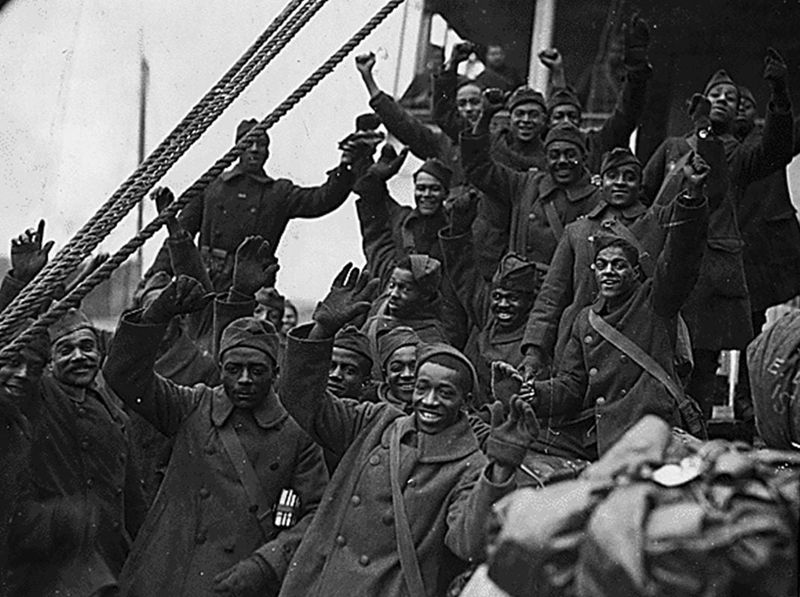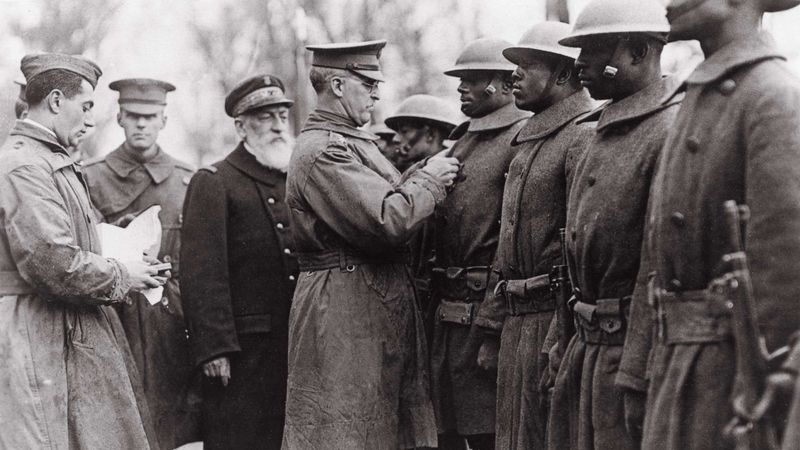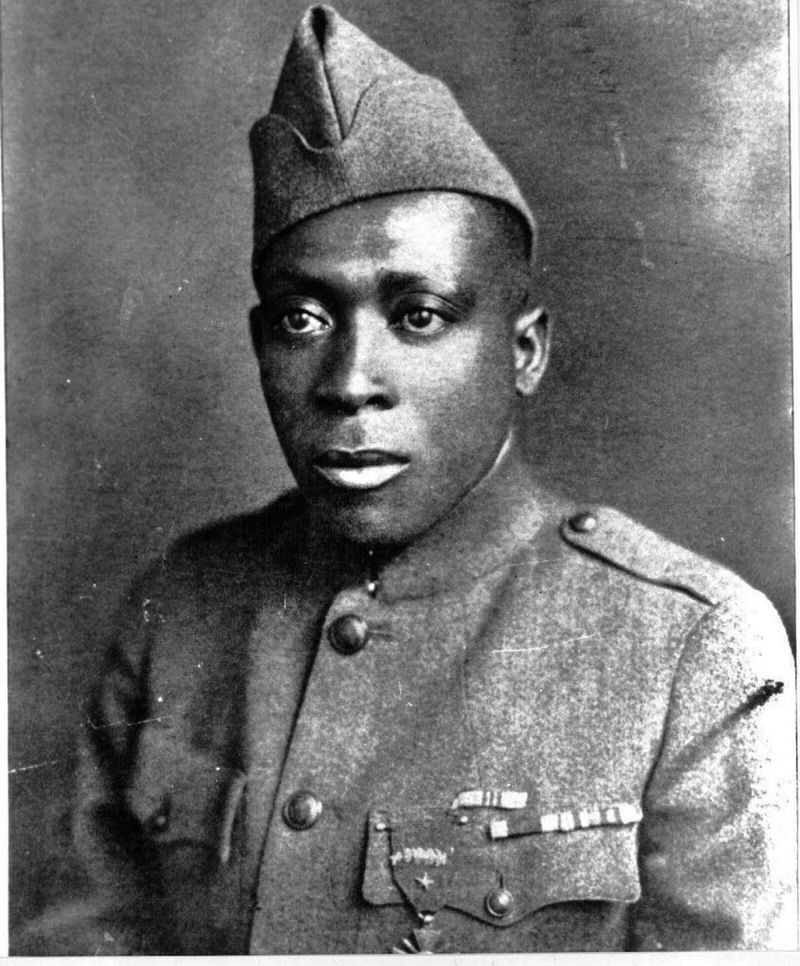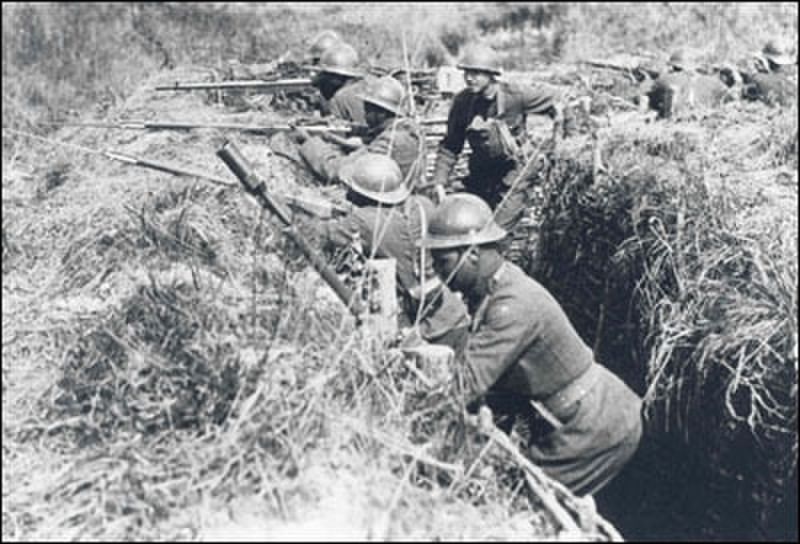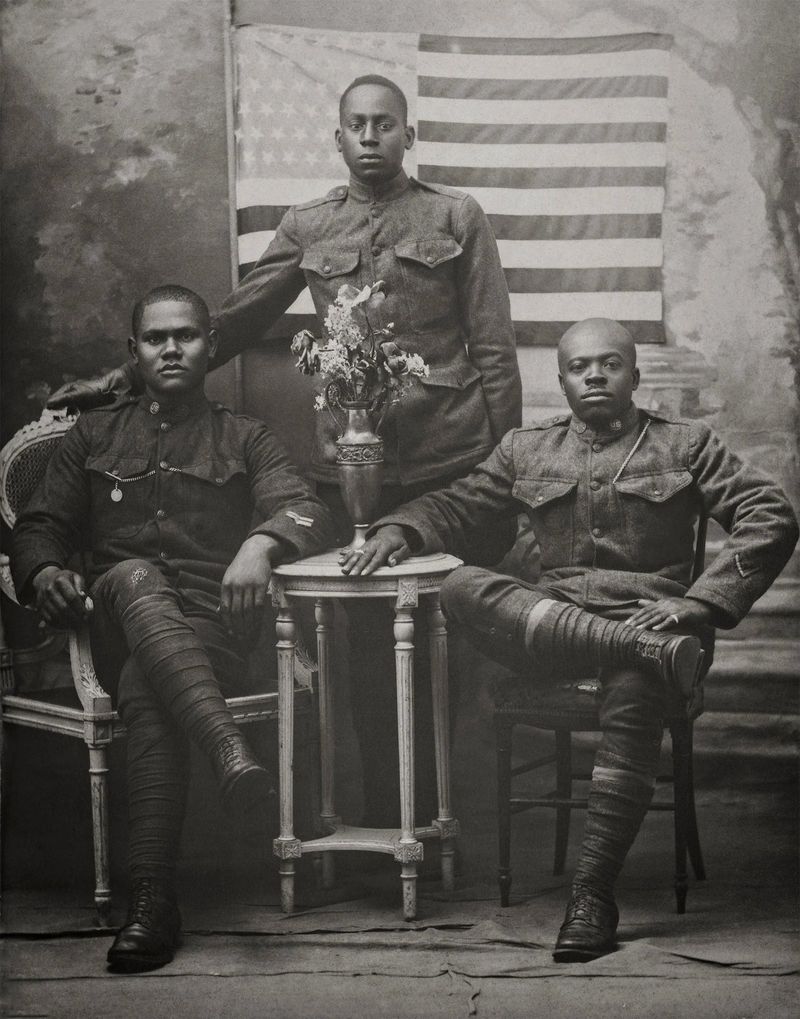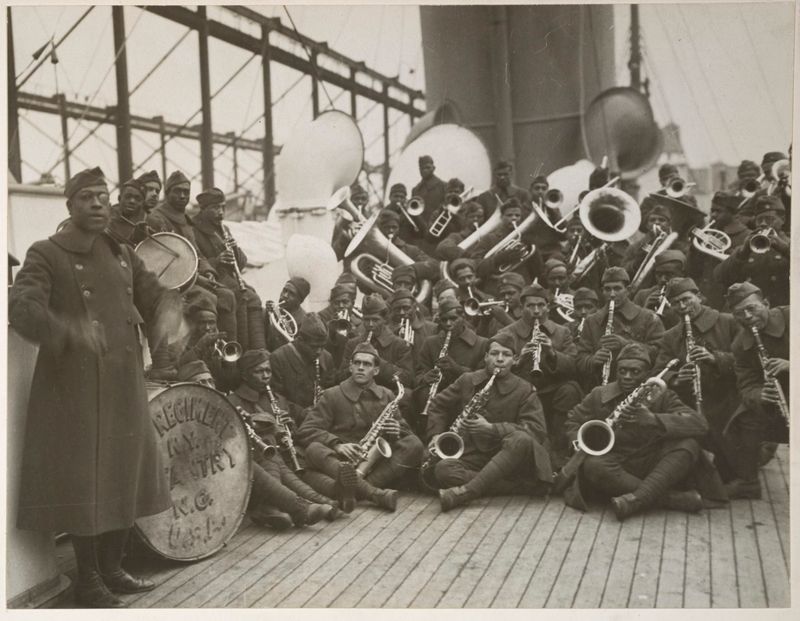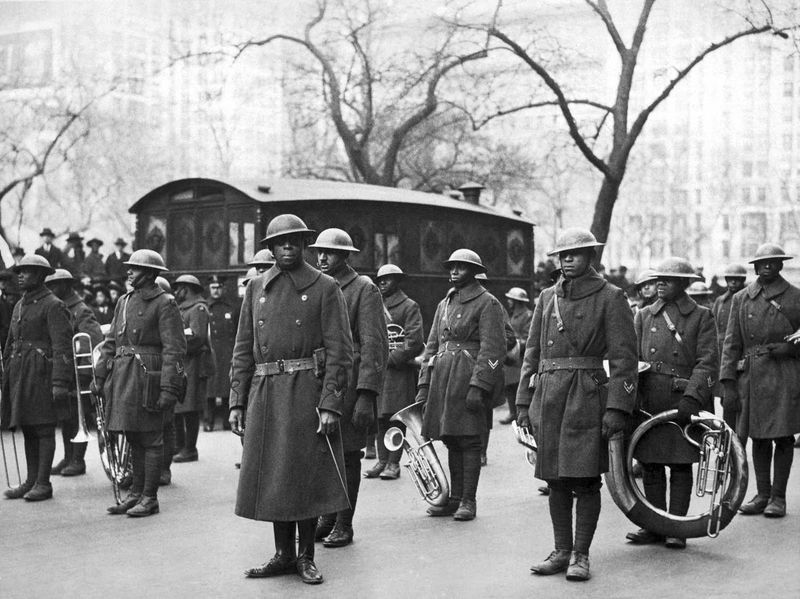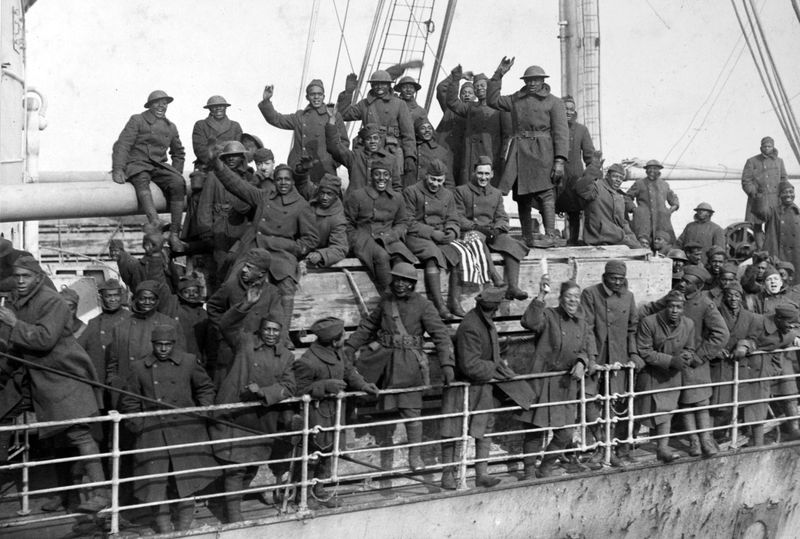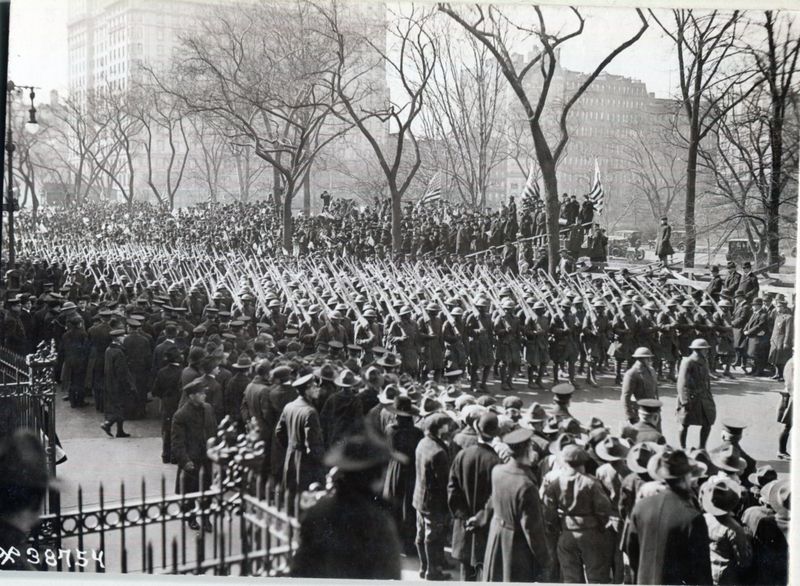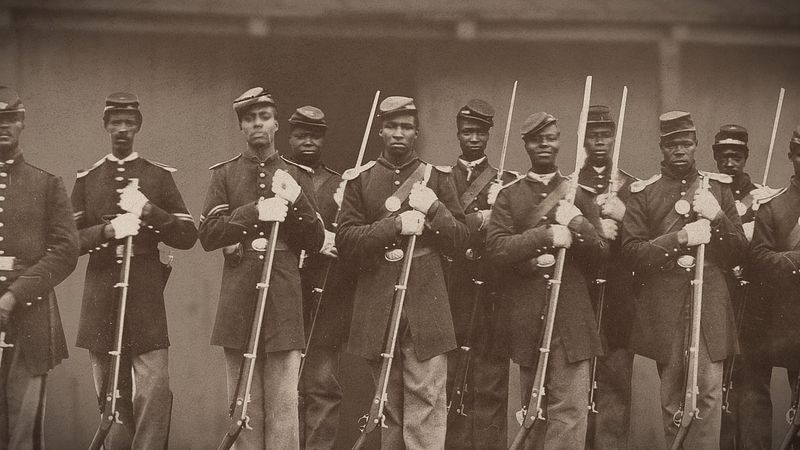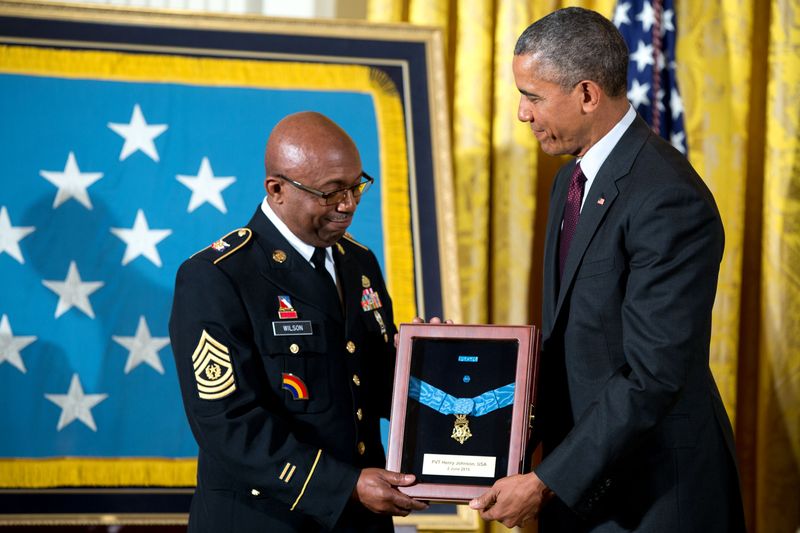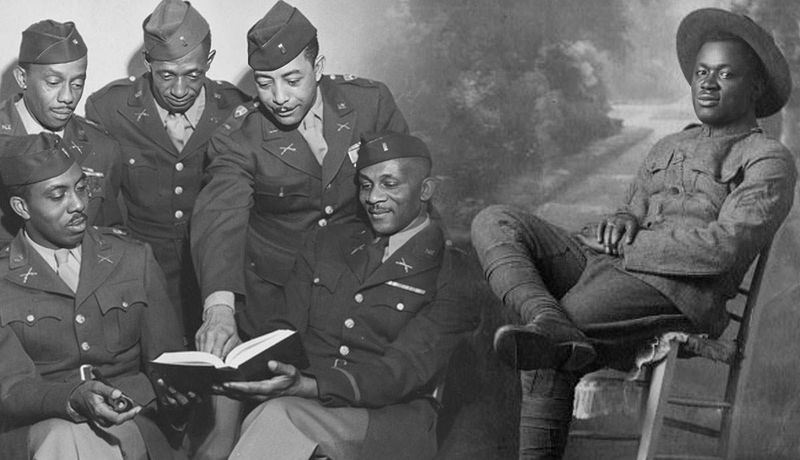The Harlem Hellfighters were one of the most legendary yet overlooked military units in U.S. history. These Black soldiers fought bravely in World War I, despite facing racism from their own country. Here’s how they made history:
1. They Were One of the First All-Black Regiments in the U.S. Army
Originally known as the 369th Infantry Regiment, they were formed during a time of deep racial segregation in the military. Despite the challenges, these soldiers showcased resilience and determination.
Their formation marked a significant step in the military, paving the way for diversity and inclusion. The regiment faced skepticism and prejudice from their peers. However, their courage and competence were undeniable.
They became a symbol of hope and progress for African Americans nationwide. Their existence was a testament to breaking barriers and challenging norms, inspiring future generations to continue the fight for equality.
2. The U.S. Didn’t Want Them on the Front Lines
The Army initially assigned them to labor duties instead of combat, reflecting the era’s prevalent racial biases. This decision was met with disappointment among the troops eager to prove their mettle on the battlefield.
However, their chance came when the French military, recognizing their potential, requested their assistance. This opportunity allowed the Hellfighters to demonstrate their combat skills.
Their transition from laborers to fighters showed their adaptability and drive. Their performance in battle eventually forced the U.S. Army to reconsider their roles, highlighting the unjust limitations imposed on them.
3. They Fought Longer Than Any Other American Unit
The Hellfighters spent 191 days in continuous combat, more than any other U.S. regiment in World War I. Their relentless spirit and tenacity in battle earned them a formidable reputation among allies and adversaries alike.
Their lengthy engagement on the front lines was a testament to their endurance and commitment. Despite facing harsh conditions and relentless enemy attacks, they held their ground.
Their bravery and perseverance during extended combat not only highlighted their capabilities but also challenged the discriminatory views held by many within their own military and beyond.
4. They Never Lost a Trench or a Prisoner
Despite brutal fighting, the Harlem Hellfighters never gave up their position and never allowed an enemy soldier to capture one of their own. Their defensive strategies and teamwork were pivotal in their success.
Their ability to hold trenches under intense pressure showcased their strategic acumen and unwavering courage. This feat was remarkable, considering the odds they faced.
Their success in maintaining their lines bolstered their reputation as formidable warriors. Their dedication to their comrades and mission fortified their legacy as a unit that could be counted on, no matter the circumstances.
5. They Earned France’s Highest Military Honor
The entire regiment was awarded the Croix de Guerre, France’s most prestigious military decoration. This honor recognized their extraordinary bravery and contribution to the war effort.
The French, who had witnessed their heroism firsthand, awarded this distinction, underlining the Hellfighters’ exemplary combat performance. It was a significant moment that acknowledged their efforts internationally.
Their recognition by the French military underscored the impact they made on the global stage. It served as a powerful statement against the racial prejudices they faced back home, highlighting their undeniable prowess and valor.
6. Henry Johnson Became a One-Man Army
While on sentry duty, Henry Johnson fought off a German raid alone, despite being wounded 21 times. His bravery became legendary among his peers.
Johnson’s actions that night earned him the nickname “Black Death” and made him one of the first Americans to receive the Croix de Guerre. His heroics were a beacon of inspiration.
His story highlighted the individual valor within the regiment, showcasing that extraordinary deeds were not limited to larger acts but could also be personal battles bravely fought, leaving an indelible mark on history.
7. Their Own Country Denied Them Full Recognition
Despite their heroics, the U.S. refused to award them the Medal of Honor at the time. Henry Johnson, like many others, only received it posthumously in 2015, long after his deeds.
This denial of recognition reflected the deep-seated racial biases prevalent in the U.S. military and society. Their bravery was overshadowed by discrimination.
Their long-overdue recognition served as a reminder of the systemic injustices they faced and a call to rectify historical wrongs. It underscored the need for acknowledgment and appreciation of their sacrifices and contributions.
8. Their Nickname Came from the Enemy
The Germans called them “Hellfighters” because of their ferocity in battle. The name, intended as a mark of respect, highlighted their tenacity and fearlessness under fire.
This nickname became a badge of honor for the regiment, symbolizing their unyielding spirit and formidable combat skills. It was a testament to their reputation.
The name “Hellfighters” not only characterized their bravery but also became an enduring part of their legacy, forever linking their identity to their extraordinary military prowess and indomitable fighting spirit.
9. They Were Also Famous for Their Music
The regiment’s band, led by James Reese Europe, introduced jazz to Europe, leaving a lasting impact on global music. Their performances captivated audiences and showcased their cultural influence.
Their music transcended the war, offering comfort and familiarity to soldiers and civilians alike. It was a unifying force amid the chaos of conflict.
Their legacy in music was as profound as their military achievements, demonstrating the multifaceted contributions of the Harlem Hellfighters. They played a pivotal role in popularizing jazz worldwide, enriching cultural landscapes across continents.
10. They Redefined Military Heroism
Their courage in battle proved that Black soldiers were just as capable as any others, challenging racist views in the military. Their actions set new standards for heroism.
Their bravery and effectiveness in combat forced a reevaluation of racial biases, making it clear that heroism knows no color. They embodied true soldierly virtues.
By redefining what it meant to be a hero, the Hellfighters paved the way for future generations of Black soldiers. Their legacy encouraged a broader acceptance and appreciation of diverse contributions to military achievements.
11. Racism Followed Them Home
Despite their service, many Hellfighters returned to segregation and violence, with some even being attacked in race riots. Their sacrifices were met with hostility rather than honor.
The stark contrast between their wartime heroics and peacetime reception highlighted the racial injustices they faced. It was a bitter return for many.
Their experience underscored the deep-seated racial divisions in American society, serving as a catalyst for change. They returned to fight another battle, one for civil rights and equality, which would continue for decades.
12. They Set the Stage for the Civil Rights Movement
Their fight for recognition laid the groundwork for the integration of the U.S. military in 1948. Their perseverance became a precursor to broader societal changes.
The bravery and determination of the Hellfighters inspired future civil rights advocates, linking military and social struggles for justice. Their impact was far-reaching.
By breaking racial barriers in the military, they helped plant the seeds for the Civil Rights Movement, demonstrating how military service could influence societal progress towards equality and justice for all.
13. They Inspired Future Generations
Their legacy influenced later Black military units, including the Tuskegee Airmen and the Buffalo Soldiers. The Hellfighters set a precedent for excellence.
Their courage and achievements provided a blueprint for future generations, showing what was possible despite racial barriers. They were role models in uniform.
By inspiring subsequent military heroes, the Hellfighters ensured their impact extended beyond their own time. Their story continues to encourage and empower new generations of soldiers to strive for greatness and equality.
14. Their Medals Took Nearly 100 Years to Arrive
Many Hellfighters, like Henry Johnson, had to wait until the 2000s for the U.S. to officially recognize their bravery. This delay was emblematic of the broader struggle for racial justice.
Receiving their medals was a bittersweet victory, acknowledging their heroism long after it was due. It was a moment of rectifying historical wrongs. Their eventual recognition served as a powerful reminder of the persistence of inequality.
It highlighted the importance of honoring those who paved the way before them, ensuring their sacrifices wouldn’t be forgotten.
15. Their Story Is Finally Being Told
Books, documentaries, and even a planned movie starring Michael B. Jordan are finally bringing the Harlem Hellfighters into the spotlight. Their story is being embraced and celebrated.
This renewed interest marks a significant turn in acknowledging their contributions and struggles. It ensures their legacy is preserved and shared with future generations.
Through various media, the Hellfighters’ bravery and impact are finally receiving the recognition they deserve. These narratives offer a chance to educate and inspire, highlighting the timeless relevance of their fight for justice and equality.
